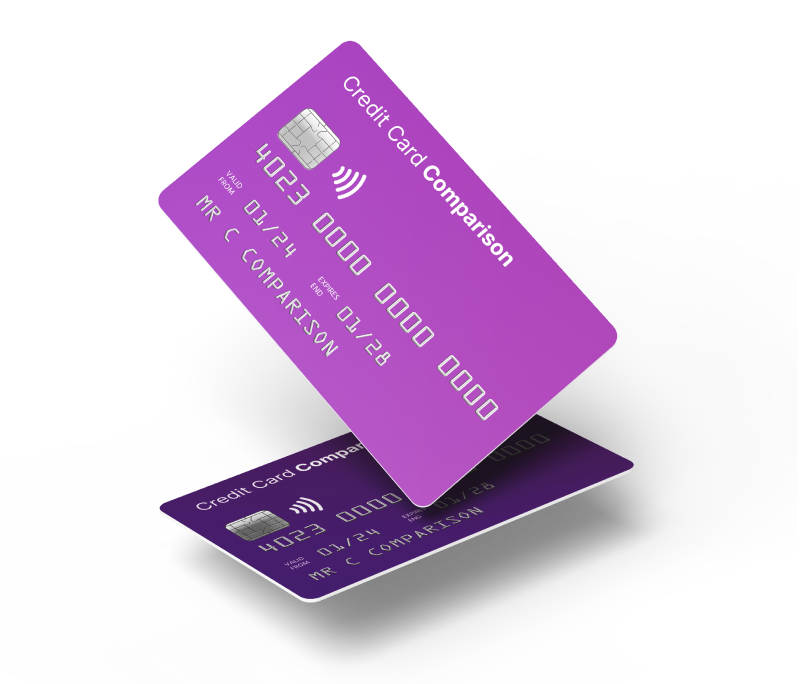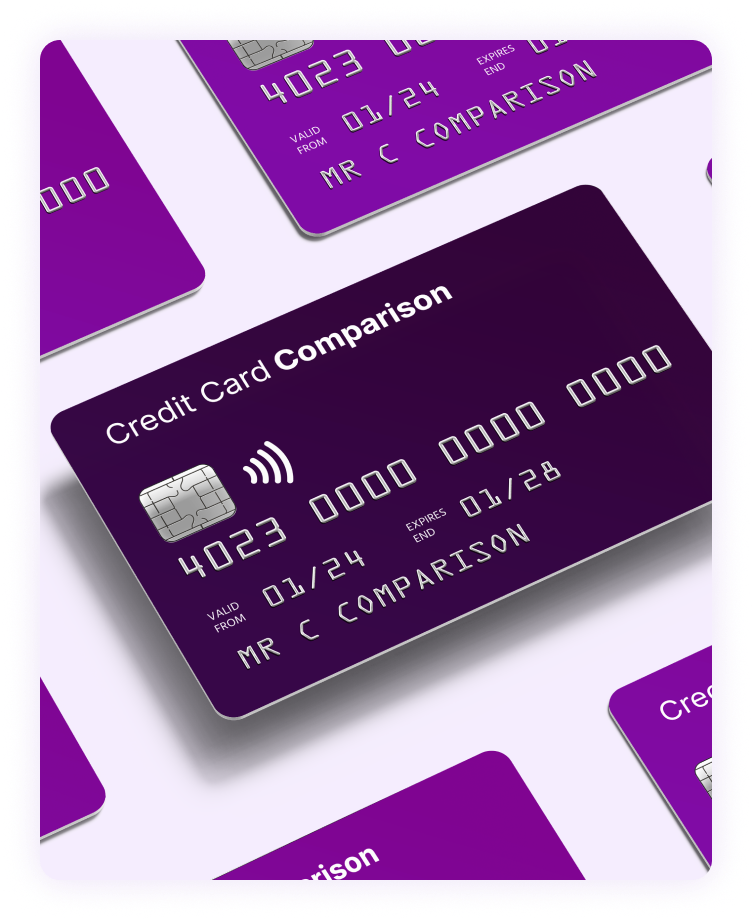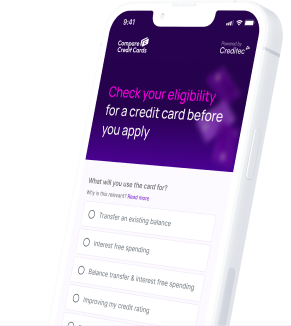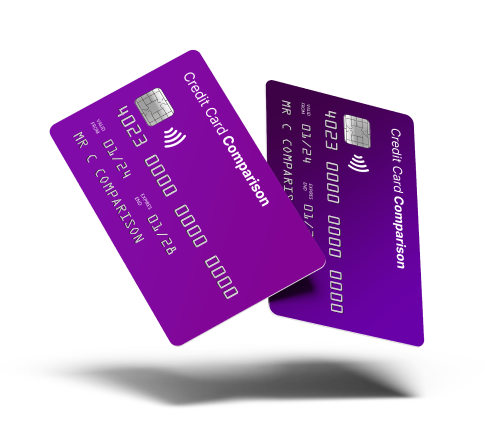Balance Transfer Credit Card
Save on interest with a 0% balance transfer card
Check your eligibility for credit cards from the industry's leading providers.
We are a credit broker, not a lender.

Are you currently paying interest on the balance of one or more credit cards?
You might be able to save with a balance transfer credit card.
We've shared some information about balance transfer credit cards to help you make an informed decision that suits you and your financial situation.

What is a balance transfer credit card?
A 0% balance transfer credit card allows you to move the balance from one or more existing credit cards to a new one. This gives you the opportunity to clear your balance while being charged little or no interest during your promotional period.

Let's say you have three active credit cards.
On credit card one, you have a balance of £104, with a 14% interest rate.
On credit card two, you have a balance of £89, with a 22% interest rate.
On credit card three, you have a balance of £410, with a 39% interest rate.
You move the combined balance of £603 to a balance transfer credit card, which offers a 12-month interest-free period. This is an example - the interest-free periods will vary with each provider. You are now able to pay your outstanding balance without worrying about interest during the promotional period.
Any balance remaining after the promotional period ends will be charged interest at your standard interest rate(s); you'll be shown your standard interest rate(s) as part of your terms and conditions before you sign your credit agreement.
How might a balance transfer credit card benefit me?
Moving the balance of more than one credit card could make it easier to keep on top of your borrowing with everything now in one place. If you are able to clear your balance before the 0% interest promotional period comes to an end, balance transfer credit cards could save you money on interest fees. This could also mean that you are able to pay off your borrowing quicker.

Things to think about before applying for a balance transfer credit card
You can't transfer balances between cards issued by the same bank or credit card provider. Your promotional period usually begins from the date your credit card account is opened - not the date you make your balance transfer(s).
Some credit card providers require you to make your balance transfer(s) within a certain period of time from the date your account is opened.
Most credit card providers will charge a balance transfer fee when you move an existing balance(s) to your new credit card account. This fee is usually a percentage of the amount you are transferring. It's important to take all fees and charges into consideration before deciding if a balance transfer credit card is suitable. If you will pay more in transfer fees than interest, it may not be the right product for you.
Don't forget, if you do not clear your outstanding balance before the promotional period ends, you will be charged interest at your standard interest rate(s). You should carefully consider if you will be able to comfortably afford the monthly repayments at the standard interest rate(s).
Who can apply for a balance transfer credit card?
Each credit card provider will have their own eligibility criteria but, as a general guide, to apply for a balance transfer credit card you must:
- Be a UK resident with 3 years' UK address history;
- Have a UK-issued bank account with a valid debit card;
- Have a regular source of income paid directly into your UK bank account; and
- Be over the age of 18.

How might a balance transfer credit card affect my credit score?
Anyone applying for a credit product, such as a loan or credit card, must undergo a hard credit search carried out by the lender; this is sometimes known as a full credit check. A hard search will be visible on your credit file, and too many searches in a short space of time could affect your credit score. If used sensibly, balance transfer credit cards could help improve your credit score.
Making more than your minimum repayment each month and staying well within your credit limit will demonstrate that you can reliably manage and repay your borrowing. You would need to manage any other credit accounts in the same responsible, reliable way in order to see a positive change to your credit score.
Ready to start comparing balance transfer credit cards?
I'd like to apply for a balance transfer credit card. What's next?
If you've decided that a balance transfer credit card is the best option for you, you can check your eligibility without impacting your credit score. Complete our online Eligibility Checker by answering a few quick questions, then sit back and let us do the hard work. In just 60 seconds, we will run a soft search, scanning our range of providers to find you an ideal match. This will give you an idea of how likely you are to be approved for a credit card.
If you are pre-approved for one or more credit cards, you will be able to read through the features and benefits of each one before deciding whether or not to proceed with a full application.
Please be aware that if you are pre-approved for a credit card this does not guarantee acceptance. The credit card provider will also run their own checks, as well as a hard credit search, before confirming the outcome of your application.


What are the best balance transfer cards?
There's no one set answer to this question, as everyone's financial situation and requirements are different.
When completing our Eligibility Checker form, answering the questions as accurately as possible will help us match you to the most suitable credit cards for you and your personal circumstances.
Frequently Asked Questions
If your account has a balance outstanding after the interest-free promotional period comes to an end, you will be charged interest at the standard interest rate(s). You can find details of your standard interest rate(s) in your credit agreement.
You can, although you should familiarise yourself with the interest rates for purchases and cash withdrawals on your credit card account before you sign your credit agreement so there are no unexpected fees or charges on your credit card statement. Using a credit card to withdraw money from an ATM could affect your credit score. This type of transaction is known as a cash advance; some lenders may consider it poor money management, particularly if multiple transactions are made over a short period of time.
For full details, you should refer to your credit agreement.









